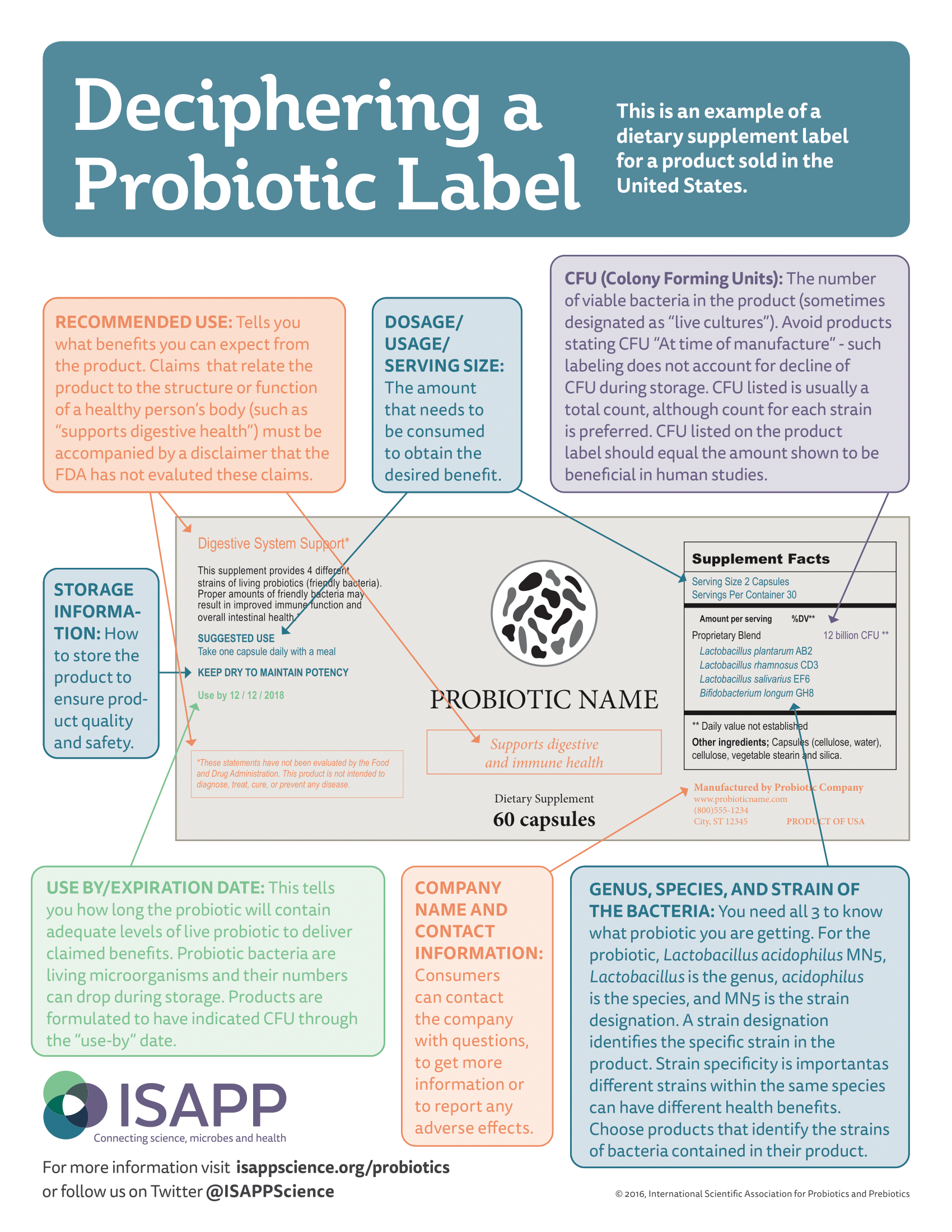Are Probiotics Good After The Expiration Date

Imagine rummaging through your pantry, a haven of forgotten treasures. You unearth a bottle of probiotics, hoping to give your gut a little love. But wait, a date stares back at you: past due. A wave of uncertainty washes over you. Are those friendly bacteria still friendly, or have they turned into tiny, useless squatters?
The question of whether probiotics retain their benefits after the expiration date is a common one, sparking debates among health enthusiasts and experts alike. While popping that expired pill might not be dangerous, the effectiveness of the probiotic is likely compromised. Understanding the factors influencing probiotic viability and how to assess their potency is crucial for maximizing their benefits.
The Life and Times of Probiotics
Probiotics, those live microorganisms celebrated for their health benefits, aren't immortal. From the moment they're manufactured, they embark on a slow decline.
This decline is influenced by various factors, including storage conditions, the specific strains of bacteria used, and the formulation of the product itself. Exposure to heat, moisture, and oxygen can accelerate their demise.
What Does "Expiration Date" Really Mean?
The expiration date on a probiotic supplement isn't necessarily a reflection of safety, but rather of potency. Manufacturers guarantee a certain number of live bacteria, often expressed as Colony Forming Units (CFUs), until that date.
After that date, the number of live bacteria is likely to be lower than the amount stated on the label. This is important for people seeking specific health benefits because they may require certain amounts of bacteria.
It's less a "use by or else" warning and more of a "best if used by" recommendation for optimal effectiveness.
The Role of CFUs: Counting the Little Guys
CFUs are the standard unit for measuring the number of live and active microorganisms in a probiotic supplement. A higher CFU count generally indicates a more potent product, capable of delivering a greater dose of beneficial bacteria to your gut.
However, it's not just about quantity. The specific strains of bacteria also matter. Different strains offer different benefits, so choose a product that targets your specific health needs.
Factors Affecting Probiotic Viability
Several factors can impact the survival of probiotics, even before the expiration date. These include manufacturing processes, packaging, and storage conditions. For example, some manufacturers use special encapsulation technologies to protect the bacteria from stomach acid.
Packaging plays a vital role in shielding probiotics from moisture and oxygen. Proper storage is essential to maintaining their potency. Experts from the National Institutes of Health recommend storing probiotics in a cool, dry place, away from direct sunlight.
What Happens After the Expiration Date?
After the expiration date, the number of live bacteria in a probiotic supplement gradually decreases. While the product might still contain some viable organisms, the CFU count is likely to be significantly lower than what's stated on the label.
This means that the effectiveness of the probiotic may be reduced, potentially impacting its ability to provide the intended health benefits. In essence, you're getting a weaker dose.
However, it is important to note that they likely aren't dangerous to consume, just less effective.
Making Informed Choices: Beyond the Date
So, you've found an expired probiotic. What do you do? Here are some considerations:
Assessing the Situation
Consider how long past the expiration date the probiotic is. A week or two might be less concerning than a year or more.
Think about how the probiotic was stored. If it was kept in a cool, dry place, it's more likely to retain some potency than if it was stored in a warm, humid environment.
The Smell Test (Not Always Reliable)
While not a foolproof method, you can cautiously inspect the probiotic for any unusual odors or visible signs of spoilage. However, the absence of a bad smell doesn't guarantee potency.
It's important to remember that the decrease in potency is primarily due to the reduction in the number of live bacteria, which may not be detectable through smell alone.
When to Toss It
If the probiotic is significantly past its expiration date, if you're unsure about its storage conditions, or if you're relying on it for a specific health condition, it's generally best to discard it.
Buying a fresh bottle ensures you're getting the guaranteed potency. Always prioritize freshness and optimal effectiveness.
Preventing Probiotic Waste
To avoid wasting probiotics, buy smaller quantities that you can consume before the expiration date. Store them properly, and be mindful of the expiration dates when purchasing.
Consider subscribing to a probiotic delivery service that sends you a fresh supply each month, ensuring you always have potent supplements on hand. This minimizes waste and optimizes your gut health efforts.
The Broader Landscape of Probiotics
Probiotics are increasingly recognized for their diverse health benefits, ranging from improving digestive health to boosting the immune system. Research published in the Journal of the American Medical Association suggests that certain probiotic strains can help alleviate symptoms of irritable bowel syndrome (IBS).
Moreover, studies have explored the potential of probiotics in preventing antibiotic-associated diarrhea and supporting mental well-being. As the science evolves, it's crucial to stay informed about the latest findings and choose probiotic supplements wisely.
Conclusion: A Little Love for Your Gut (and Your Wallet)
While an expired probiotic may not pose a direct health risk, its effectiveness is likely diminished. Think of it like a wilted bouquet of flowers; still aesthetically pleasing, perhaps, but lacking the vibrancy and fragrance of its prime.
To ensure you're getting the full benefits of probiotics, prioritize freshness, proper storage, and mindful consumption. By understanding the factors that influence probiotic viability, you can make informed choices that support your gut health and your overall well-being. Ultimately, a little extra awareness can make a big difference in the health of your gut and your wallet.


















